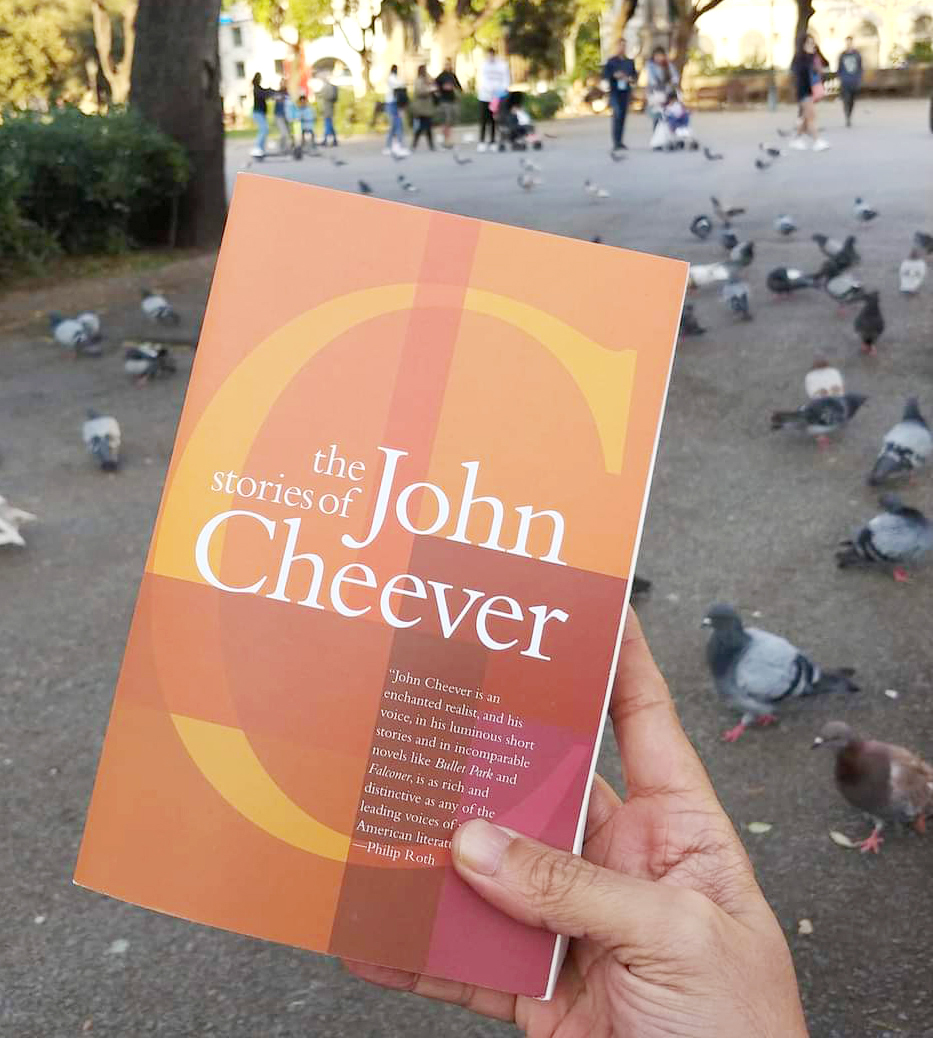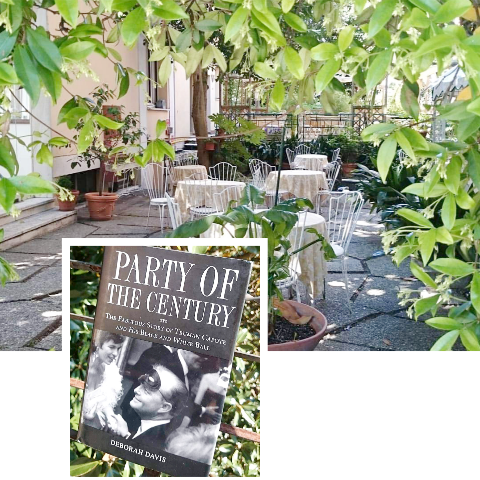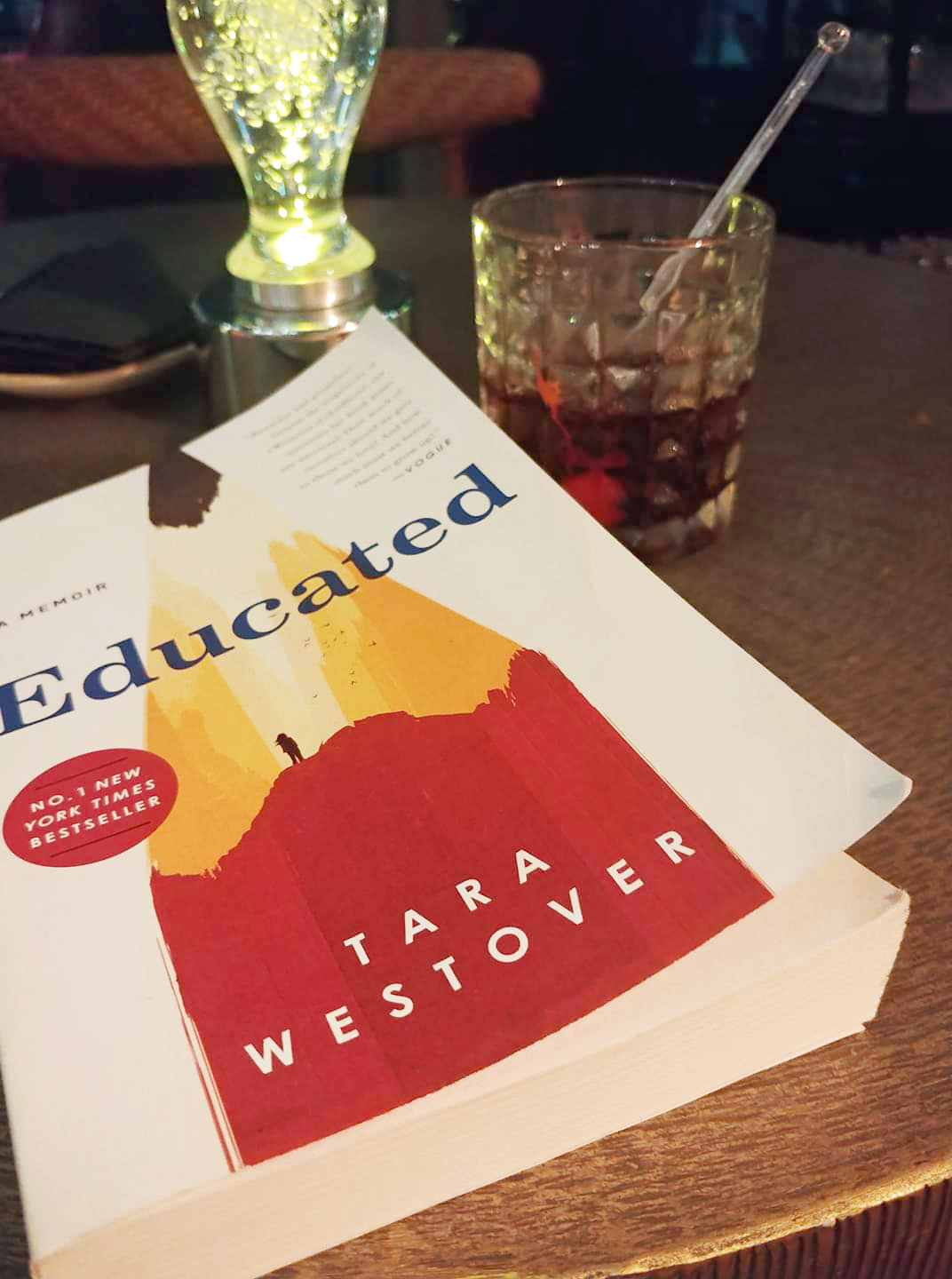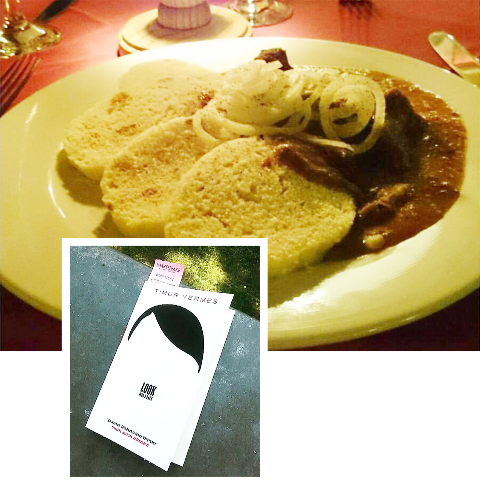Eat and read: Lolita for the soul
On reading and all that's salty, bitter, sour, umami, and sweet in an unforgettable meal
By AA Patawaran
At A Glance
- Reading <i>Lolita</i> at the right age is a Roquefort paired with a glass of a 1975 Yquem, that is to say, potentially overwhelming in intensity yet just delicately perfect.
Images by the author

If I were to recommend a book I haven’t read from my 2023 stash, I’d go for The Upstairs Delicatessen: On Eating, Reading, Reading About Eating, and Eating While Reading by Dwight Garner.
Eating and reading are two of my great pleasures, although until 2015 I don’t think I ever really ate for the sheer joy of eating. I thought I was more interested in the company, in the ambience, the music, the clinks of glasses and the conversation, and sometimes the other people in the room.
McMillan, its publisher, describes The Upstairs Delicatessen as a “comic, personal classic,” in which the author “gathers a literary chorus to capture the joys of reading and eating.”
Like Garner, a New York Times book critic, I consider myself an omnivore when it comes to food and books. I read everything, even trash, and I like a whole range of edibles, whether I am eating them at a fine dining restaurant or in a smelly section of the public market in Iloilo.

What caught my eye in The Upstairs Delicatessen was an excerpt I read on the McMillan website: “Sometimes, too, after school, I’d flip through a skin magazine, Club or Chic or Oui, found in the weeds by the side of the road; someone no doubt had tossed it from a car window and probably regretted it later. I read these alone in my room, not eating a bite. I remember a Penthouse Forum letter in which a woman described doing things with mashed potatoes, gravy, and her grateful boyfriend that made me look at side dishes with fresh eyes.” I too adulted precociously when I jumped from The Wizard of Oz to Harold Robbins’ A Stone for Danny Fisher, which I read surreptitiously, with a flashlight beneath the sheets in the deep dark of the night.
I don’t always eat and read, but I did speedread the last few chapters of Tara Westover’s Educated with two Black Russians in a quiet corner of Manila House while, elsewhere at the membership club, in a private room, my friends at The Very Extra Book Club had begun tucking themselves into our book discussion dinner.

Also, books are a constant companion in my solo travels so, yeah, I’ve had a dinner date or two over tapas in Barcelona with John Cheever, many a meal with Timur Vermes in Berlin and in Budapest, where I took more delight in his wacky novel Look Who’s Back than in my schnitzel or goulash, and breakfast in the garden of a shabby chic hotel in Lido, Venice with Deborah Davis and her Party of the Century, her very detailed, very juicy, and breathtaking account of Truman Capote’s famed and infamous Black and White Ball.
Last Christmas, I read a couple of essays in David Sedaris’ semi-autobiographical Calypso, but it left me hankering for something like The Glass Palace by Indian writer Amitav Ghosh, which I found, reading it on Christmas Day in 2018, better than menudo or carbonara or chicken macaroni or even caviar on bellini, if only because I could stuff myself full of it without feeling bloated.

Books can be such exquisite pleasures, filling to the soul. A book like Vladimir Nabokov’s controversial Lolita, for instance, can be the kind of pleasure that, like food, you relish with every bite, the flavors and textures lingering not only on your lips but also in your memory long after dessert has been cleared away.
My rereading of Lolita for my book club, now that I no longer have the raging hormones of a teenager, which kept me glued on the salacious details I read between the lines, was like having Roquefort at an age as mature as the cheese, rather than having a sliver of it shoved into your milk-and-cookies mouth as a child.
In fact, reading it at the right age is a Roquefort paired with a glass of a 1975 Yquem, that is to say, potentially overwhelming in intensity yet just delicately perfect because Nabokov writes not only in the style of a conductor of an orchestra, where every word, even the proper nouns, such as the street names or the names of the motels, holds a nuance just as important as the slightest sound, barely a hum, that every instrument makes in an orchestra.

And the words, like honey on camembert or toast and chutney with paté or rib roast with salsa, are as sumptuous as every dish on the Christmas table.
I suppose other books are just as delectable. The best is still Lolita for me. I’ve been afloat on a Nabokov cloud since I reread it in 2019. Both beatified and ballyhooed in its time, it’s now a classic, given its rightful place in America’s finest works.
Like I said, my first encounter with Humbert Humbert and her so-called nymphet Lolita was in my libidinous teens, which naturally led my attention to the trees of pornographic details I guess I deduced from the text more than I found in it that I missed the forest of literary tricks with which Nabokov crafted this masterpiece.
On page 177 of my annotated copy, I was laughing like a maniac over Humbert’s audience with the mistress of an all-girls school he chose for his “little Lo, light of his life, fire of his loins.”
How, in trying to impress him with her progressive approach to educating the girls, “That is, with due respect to Shakespeare and the others, we want our girls to communicate freely with the live world around them rather than plunge into musty old books,” the schoolmistress bobbled and butchered her own self-aggrandizing spiel by calling her client all sorts of different names—Mr. Humbird, Dr. Humburg, Dr. Hummer, Hummerson...
To think only a few pages before, a passage I was reading rather distractedly because it was a long paragraph full of numbers, explaining in dollars and cents how Humbert’s finances were cracking under the strain of his and Lolita’s joyride across America’s beaches, deserts, cheap motels, and middle-of-nowhere pitstops, cracked open my tear ducts instead and with nothing more powerful than a parenthetic modifier enclosed in em-dashes, my favorite of punctuations but only when used to this dramatic, surprising effect.
This very sentence follows. (Please take note of those lovely, perfectly used long dashes).
“And I catch myself thinking today that our long journey had only defiled with a sinuous trail of slime the lovely, trustful, dreamy, enormous country that by then, in retrospect, was no more to us than a collection of dog-eared maps, ruined tour books, old tires, and her sobs in the night—every night, every night—the moment I feigned sleep.”
Lolita ages like wine. But it’s more than wine. It’s all that’s salty, bitter, sour, umami, and sweet in an unforgettable meal.